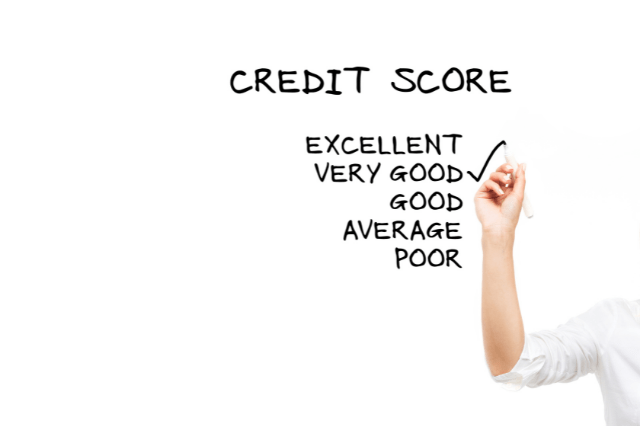How To Get A Better Credit Score
If you’re trying to find finance, a healthy credit score is significant. People in Australia 18 years of age and over, and have applied for credit have a credit file. this might be a phone plan, mastercard application or loan.
Your credit file contains your credit score.
The Basics:
Credit File: Also referred to as a credit report, these are employed by lenders to work out the ‘risk’ of supplying you with credit. They contain personal information and credit history. they’re commonly in PDF format.
Credit Score: Located on your credit file, your score starts at 0,up to a excellent 1,200, counting on the reporting agency. Score numbers are often thought of as a car’s speedometer: a coach shows accelerates to 240kph but they can’t actually reach that speed. it’s next to impossible to succeed in a credit score of zero or 1,200 as they’re ‘scaled’.
*Equifax is Australia’s largest credit reporting agency. Their scores are calculated and scaled between 0 and 1,200.
How are credit scores calculated?
Scores in Australia are based on:
The amount of cash you’ve borrowed or tried to borrow
The number of credit applications you’ve made
Historical repayment history: do you have a mindset of paying on time
How do i buy my credit file?
Agencies like Equifax can provide you with a replica of your credit file. Fees only occur once you want your copy during a short amount of your time or multiple copies.
*Viewing your credit file doesn’t affect the score.
Credit Scores Explained:
Excellent Score: 822 – 1,200
These files are built up over a few years of perfect repayment history. Holders of those scores haven’t applied for too many or overlarge amounts of credit and haven’t been knocked back. The chance of your rating becoming adverse,is highly unlikely. They represent the highest 20% of credit file holders.
Very Good Score: 726 – 832
These credit files have a robust and lengthy repayment history with no late or missed payments. Adverse financial events are unlikely to occur within the future. These are the highest 61 – 80% of credit file holders.
Good Score: 622 – 725
This score indicates your credit file is considered ‘safe’ for lenders, and contain minimal adverse repayment history. therefore it is in the midle range (41 – 60%) of credit files.
Average Score: 510 – 621
These credit files are considered likely to possess future adverse financial events within the next 12 months. This range consists of rock bottom 21 – 40% of credit file holders.
Below Average: zero – 509
Unfortunately,this score relates to recent adverse repayment history and / or multiple credit applications, often being declined. This range consists of rock bottom 20% of credit file holders.
Why Scores Matter:
Almost all Australians need, or a minimum, want credit at some stage in their lives whether it’s for a car, home, a mastercard on even a phone plan. Why Scores Matter:
If your credit score,is on the lower side, you’ll have far less chance of approval and borrowing power. this suggests you won’t be ready to borrow large amounts and lenders who do approve you for little amounts will charge high-interest rates as they consider you more ‘risky’.
Higher scores open many doors. Buying that nicer house or car – or both or having more options within the business. Additionally, as more lenders will approve your applications, you’ll have much more bargaining power when negotiating interest rates and loan amounts.
How to Get a far better Score:
1: Pay Your Debts
Lenders and financial institutions want to ascertain repayment history. This shows whether you’re likely to form repayments within the future. If you’ve never had credit before, you’ll appear ‘neutral’ within the eyes of lenders and they’ll pay more attention to your income and expenses.
Solution:
Make sure all of your current loans are up so far . If you’ve recently missed a payment or paid late, consider delaying your application for several months to point out lenders it had been a one-off.
Note: Utility bills, rental agreements and other bills like phones and gym memberships show abreast of credit files too. confirm you don’t have any outstanding bills.
2: Avoid Enquiries
Shopping around may be a great idea in most cases, but not credit applications. whenever you create a proper credit enquiry, it’ll cost your score. Multiple enquiries during a short period of your time can lower the score even more.
An enquiry is once you formally ‘ask’ for credit. You will provide financial and personal details to a lender with the intent of getting a loan.
Solution:
Talk to a broker. Brokers are financial experts who affect lenders and borrowers a day . they will offer you a transparent idea of whether you’ll be approved along side the quantity and interest rates, all without making a proper enquiry.
Note: Checking online to ascertain what proportion different banks will lend you only out of curiosity may result in formal enquiries harming your credit score and taking years to recuperate.
3: Age of File
If your credit file is aged,it adds to its strength. Remember, the earliest you’ll get a credit file is age 18. Folks usually start out small and ‘build’ their credit history. Younger or ‘newer’ credit files are more vulnerable to heavy score hits.
For example:
Person A:
At 18 years old, they buy a phone on an idea which creates a credit file. At age 19, when their credit file is merely one year old, they apply for a automobile loan . This costs an outsized amount of their credit score as their file features a minimal history.
Person B:
At age 18, they receive power bills and rent a property, creating a credit file. At age 23, when their credit file is 5 years old, they apply for a automobile loan . Assuming they haven’t missed any payments or bills, the hit on their credit score are going to be but Person A.
Solution:
Avoid applying for giant loans when your credit file is young. Consider ‘building’ your credit history by completing a little loan, sort of a phone plan first.
4: Size & Type
Requesting to borrow large amounts of cash may result in larger hits to your credit score. a standard occurrence is when a youth with a comparatively new credit file. applies to shop for an upscale car.The loan enquiry will reduce the credit score,if the loan is approved or declined.
Different types of lenders have different risk calculations and affect credit scores differently. for instance , a standard bank and a non-traditional, niche lender. Similar credit applications may end in different hits to your credit score from each sort of lender.
Solution:
Think about what proportion you would like and where you’re applying. Don’t attempt to borrow beyond your means. If unsure , ask a broker before applying.
5: Loan Reason
The type of loan and reason for credit also can make an impression on your credit score. Mortgages, car loans, credit cards, home renovations and private loans for things like holidays, weddings and debt consolidation all have different impacts on a credit score.
Solution:
Do some research before applying and determine what quite loans different lenders specialize in . Matching your circumstances and loan purpose to a selected lender and merchandise can reduce hits to credit scores.
Calculating Score Hits:
As we will see above, there’s a true ‘science’ in calculating credit scores and deductions for various events. From sorts of loans and lenders to the age of the file and number of enquiries, tons is taken under consideration .
FAQS
1: Does declaring bankruptcy affect my credit score?
Yes. This typically lowers a credit score and may exclude you from credit.
2: What happens if my score is basically low?
Lenders check out low scores unfavourably and you’ll need to consider different options from traditional lenders. Interest rates can typically be higher.
3: If i change my address, how does my credit file become updated?
Your credit file will remain static,until you make a future application. you’ll also update your personal information through reporting agencies like Equifax.
4: Do criminal charges/convictions affect credit score?
No, generally this doesn’t affect credit score counting on the conviction. However, they will be visible on credit files.
5: Do rich people have higher scores?
Not necessarily. Credit scores are supported repayments, not income.
Contact Us today,and let Loan-s approve your loan fast,or ring our friendly team anytime.We are waiting to welcome you on 1300 663 983.







